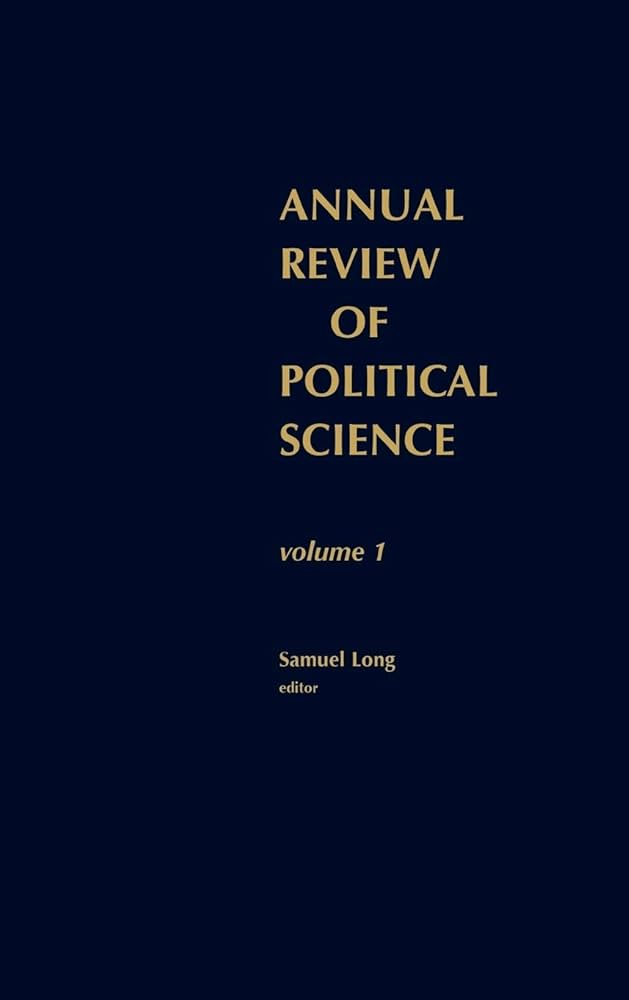Las Vidas Negras Importan: Centering Blackness and Racial Politics in Latin American Research
IF 9.5
1区 社会学
Q1 POLITICAL SCIENCE
引用次数: 1
Abstract
Racial disparities in Latin America exist in poverty levels, income, education, infant mortality, political representation, access to social services, and other key indicators. Despite this reality, researchers in comparative politics face an uphill challenge to prioritize racial politics in studies of democratization, democratic consolidation, representation, and even social movements and inequality, despite racial hierarchies being quite harmful to democracy in Latin America. This article argues for the centering of Black politics and racial hierarchies in Latin American politics and highlights recent literature to map just how that can be done. More than adding race as a variable or a control, we must understand racial identification and anti-Black racism in Latin America: how they operate, and how they influence, complicate, motivate, affirm, and inspire politics. In this article, I address ( a) why we should center racial politics in Latin American politics, ( b) how comparative racial scholars have centered Black politics, ( c) the methodologies necessary to accurately measure racial identification, and ( d) recent research that examines the interplay between racial self-identification, Black group consciousness, and voting behavior. Expected final online publication date for the Annual Review of Political Science, Volume 25 is May 2022. Please see http://www.annualreviews.org/page/journal/pubdates for revised estimates.Las Vidas Negras的重要性:以黑人和种族政治为中心的拉丁美洲研究
拉丁美洲的种族差异存在于贫困水平、收入、教育、婴儿死亡率、政治代表性、获得社会服务的机会和其他关键指标。尽管如此,比较政治学的研究人员在研究民主化、民主巩固、代表制,甚至社会运动和不平等时,仍然面临着一个艰巨的挑战,尽管种族等级制度对拉丁美洲的民主是相当有害的。本文主张黑人政治和种族等级制度在拉丁美洲政治中的中心地位,并强调了最近的文献来描绘如何做到这一点。除了将种族作为变量或控制因素之外,我们还必须了解拉丁美洲的种族认同和反黑人种族主义:它们是如何运作的,以及它们如何影响、复杂化、激励、肯定和激发政治。在这篇文章中,我将讨论(a)为什么我们应该把种族政治作为拉丁美洲政治的中心,(b)比较种族学者是如何把黑人政治作为中心的,(c)准确衡量种族认同所必需的方法,以及(d)最近研究种族自我认同、黑人群体意识和投票行为之间相互作用的研究。预计《政治学年度评论》第25卷的最终在线出版日期为2022年5月。修订后的估计数请参阅http://www.annualreviews.org/page/journal/pubdates。
本文章由计算机程序翻译,如有差异,请以英文原文为准。
求助全文
约1分钟内获得全文
求助全文
来源期刊

Annual Review of Political Science
POLITICAL SCIENCE-
CiteScore
15.20
自引率
4.60%
发文量
23
期刊介绍:
The Annual Review of Political Science has been published since 1998 to provide comprehensive coverage of critical advancements in the field. It encompasses a wide range of subjects within Political Science, such as political theory and philosophy, international relations, political economy, political behavior, American and comparative politics, public administration and policy, and methodology.
 求助内容:
求助内容: 应助结果提醒方式:
应助结果提醒方式:


